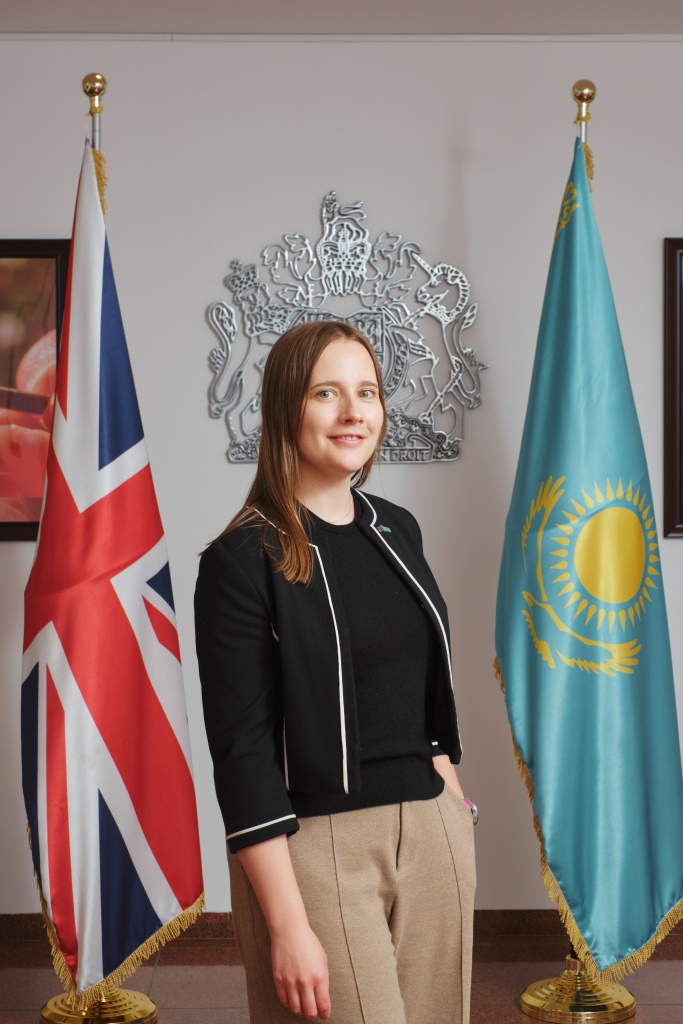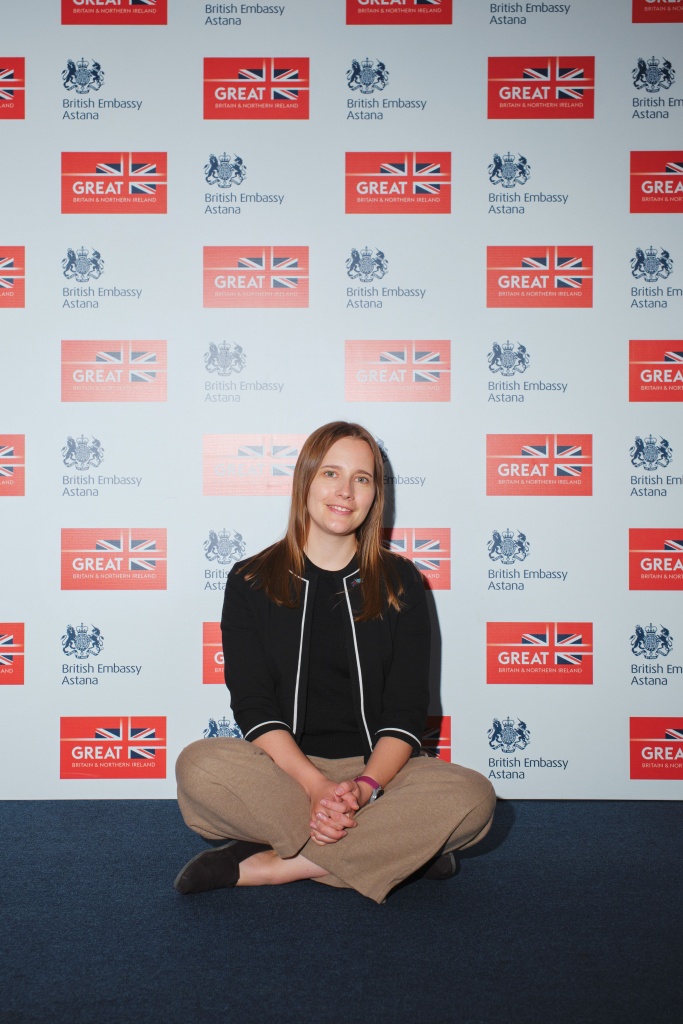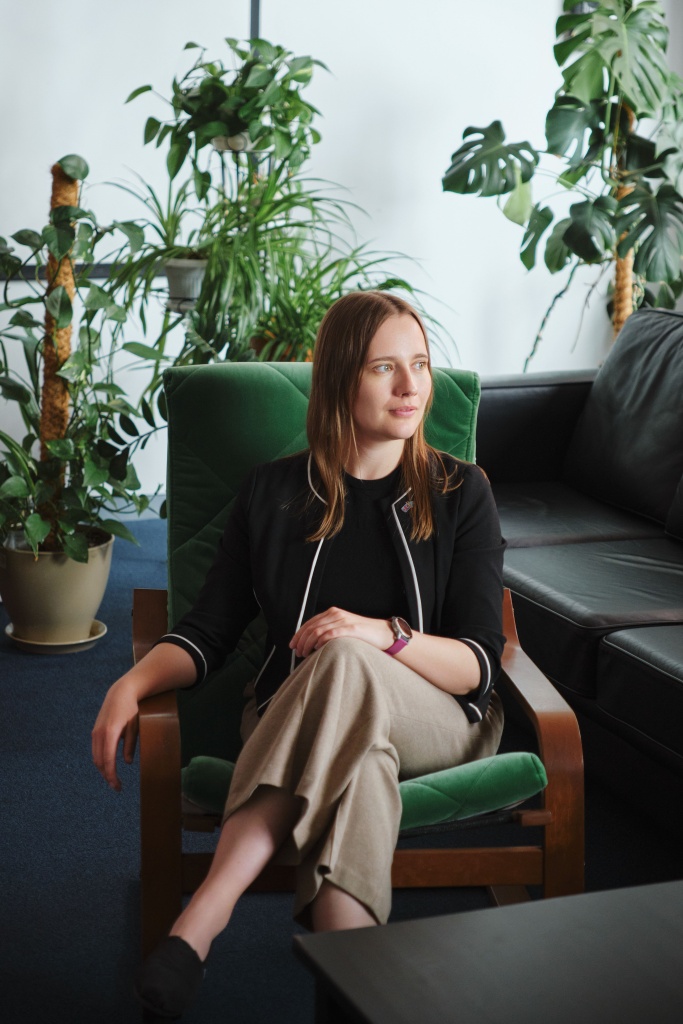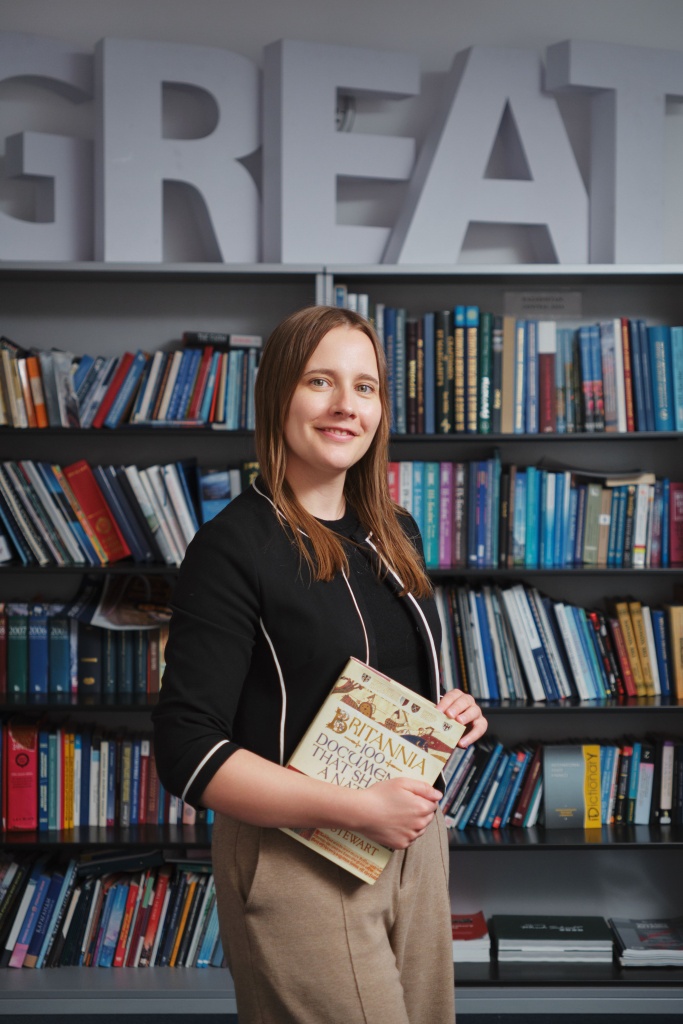British education is becoming more accessible for Kazakhstani students every year. Together with a representative from the British Embassy, we discuss which UK universities have already entered the country, how to apply for a Chevening scholarship, and why the UK believes in the potential of Kazakhstan's youth.
Beth McKendrick, Country Director, Trade and Investment, British Embassy Astana

About me
I’m the Country Director for Trade and Investment at the British Embassy in Kazakhstan. I’ve lived here for four years. My background is in pharmacology, but I transitioned into diplomacy.
I enjoy working in Kazakhstan. Our main goal is to strengthen trade and business ties between the UK and Kazakhstan through new projects, partnerships, and investments. We work across various sectors, with a particular focus on the creative industries, mining, agriculture, education, infrastructure, and manufacturing.
On cooperation in education
We’ve been actively involved in education for the past four to five years — both at the Embassy and through our partners at the British Council. It all started in 2021 when De Montfort University opened a branch in Almaty. Since then, interest in collaboration has grown on both sides: Kazakhstani universities are seeking UK partners, and UK institutions are increasingly exploring opportunities in Kazakhstan.
In September 2023, Heriot-Watt University opened a branch at K. Zhubanov Aktobe Regional University. That was our second major success in education. At the end of 2023, the Ministry of Science and Higher Education of the Republic of Kazakhstan and the UK’s Department for Business and Trade signed a Memorandum of Understanding. It aims to expand cooperation in higher education, especially in dual degrees and academic exchanges.

In September 2024, Coventry University launched a campus in Astana. This university offers a wide range of programs, with a strong focus on training educators — an important investment in the future of the capital’s education system.
I’d also like to mention agreements between Satbayev University and institutions such as the University of Glasgow and the University of Exeter. Recently, the partnership between NARXOZ University and Queen’s University Belfast has reached a new level. They already offer dual-degree programs and are now discussing the possibility of opening a local branch.
One of the most recent milestones is the upcoming launch of Cardiff University’s campus in Astana in September 2025. The university will offer programs in engineering, IT, and geological exploration — a new focus area for British education in the region. Cardiff will be the first Russell Group university in Kazakhstan — and hopefully not the last.
UK education has always prioritized international collaboration. We already have partnerships in India, Malaysia, the UAE, and across Europe. Recently, Central Asia has been gaining global attention.
Kazakhstan’s Ministry of Science and Higher Education is actively promoting the country as a regional hub for transnational education — and this strategy is proving effective.
British universities see strong potential in Kazakhstani youth. The country has a solid education system and many school graduates looking for new opportunities in higher education. UK institutions want to be part of this journey — helping young people grow and develop.
On the work of the British Embassy in Kazakhstan
We work closely with the Ministry of Science and Higher Education to understand their goals and needs. It’s not as simple as launching the same programs in every city — local context matters. Once we understand the demand, we share this information with UK universities, promote these opportunities, and try to find the best matches between the academic offerings of both countries.
We also advise UK universities visiting the region for the first time. They want to know how business works here, what laws apply, what the local culture is like — and even what the weather is.

Together with the British Council, we help the Ministry develop regulations and standards for transnational education — the framework that allows international universities to enter the market. Sometimes these rules differ from those in the UK, and our job is to make the system clear and workable for everyone.
We firmly believe that people-to-people connections play a key role in fostering cross-cultural understanding. Kazakhstani students learn about British life — from history and education to smaller things like the weather and fish and chips. At the same time, British universities benefit greatly from the perspectives and experiences of Kazakhstani students. Their energy and drive bring fresh ideas and inspiration to the UK education system.
About the Chevening program
Chevening is a fantastic opportunity for talented Kazakhstani students to study at a UK university. The scholarship covers airfare, visa, accommodation, and tuition.
There are no age limits. The main criteria are leadership potential and a commitment to contributing to your country after returning. The program’s goal is to support the next generation of leaders worldwide.
The application process starts with an online form, open from August to November each year. Applicants need to submit a CV, education and work history, and four short essays on leadership, networking, career plans, and motivation to study in the UK.

In the second stage — from February to April — shortlisted candidates are invited to an interview at the British Embassy. There, their motivation, goals, and readiness to study are assessed.
The final selection takes place in June-July. By that time, applicants must have received an unconditional offer from a UK university. So, it’s important to apply to universities early — either before or in parallel with the Chevening application.
The final decision is made by the Chevening Secretariat, based on the interview results, academic preparedness, and overall strength of the application. Studies begin in September or October.
A good command of English is essential. You also need to be ready for independent study — no one will remind you about lectures or check your homework. It all depends on your motivation and responsibility.
You also need at least two years of work experience. And after completing the program, you must return to Kazakhstan for a minimum of two years — this is a requirement for all Chevening scholars worldwide.
What UK university education offers
Many students from Kazakhstan choose British education. According to some estimates, over 45% of Bolashak scholars studied in the UK — that’s about 6,000 graduates.
The UK higher education system is known for its high quality, academic rigor, and focus on independence, critical thinking, and deep subject expertise. In addition to academics, UK universities strongly support extracurricular activities — sports, student clubs, charity work, entrepreneurship. This well-rounded support helps students grow both personally and professionally.
Graduates leave not just with a degree but with invaluable life and career experience. This “ecosystem approach” to education is what we consider our key strength.
Advice for future students
Bring an umbrella! But seriously — be bold and go for it. Studying abroad can be a life-changing experience.
Don’t worry about the language barrier — most students I’ve spoken with say they adapt quickly. There are many opportunities for international students in the UK — we’re looking forward to welcoming you!